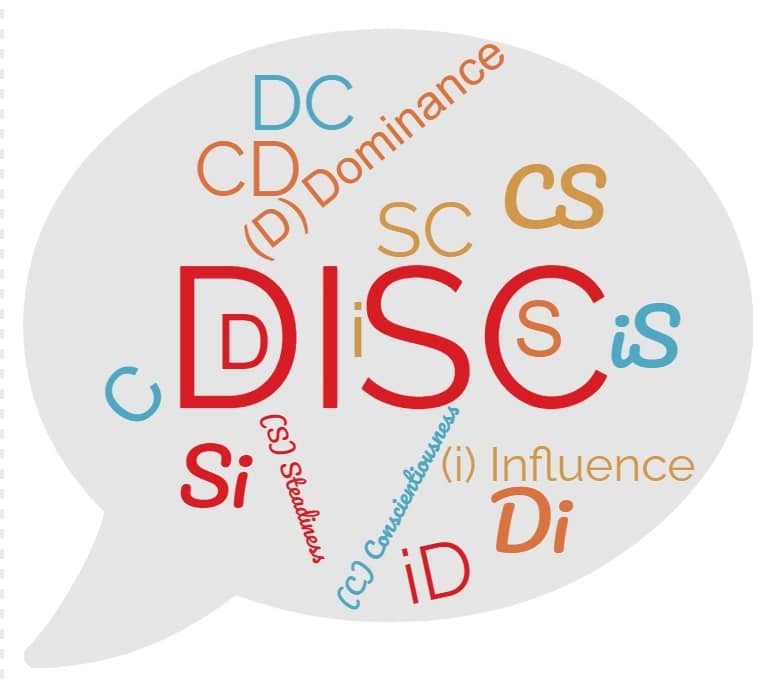Expressive. Enthusiastic. Action-oriented. Collaborative. These are a few words that describe the I DISC Style. This style is found at the top right corner of the DISC model map, which intersects at the active and accepting dimensions. This article will take a deep dive into the characteristics, behaviors, and preferences of the I-style.
Characteristics of an I-style personality
The I-style stands for “Influence,” and it refers to the ability to shape an environment or persuade others. People with the I style are described as being optimistic and enthusiastic with an upbeat attitude. They enjoy being around others where they can socialize, collaborate, and express their ideas.
These outgoing individuals have a people-oriented approach to work. Encounters with strangers excite the I-style as they genuinely like networking and connecting with others. These are the folks that aren’t afraid to strike up a conversation with someone in an elevator or at the grocery store.
I-styles tend to process their thoughts out loud, which at times, may come off as disorganized. They are likely to state their opinions without hesitation and do so with passion and excitement. You may even notice them increase their volume and bring attention to their non-verbal gestures during conversations.
People with the I style are energized by innovation. They are eager to kick off projects and get the ball rolling. By prioritizing action, they tend to operate in a swift manner, which can be overwhelming for other styles that prefer to work at a slow and steady pace.
What should one remember to do when working with I Personality Types?
When working with an I-style, try engaging with them on a personal level. For example, asking them about their day before diving into the work task. They’ll appreciate the effort to connect, even if it is just briefly during an interaction. I-styles tend to seek approval from those around them. They like to be recognized for a job well done, so offer them praise when warranted.
One of the characteristics of an I-style is impulsiveness. They may jump to a decision without carefully considering all factors. They also tend to verbalize multiple ideas at a time to others but may not have a detailed plan for executing each of them. To help the I-style stay on track, assign them deadlines, and follow up with them throughout the process.
What are the possible areas of opportunities of the I DISC style?
I-styles have a talkative nature, which is a big part of this personality. While they may enjoy talking and expressing their thoughts, some people may feel that it comes off as overbearing or as trying to dominate a conversation. This may seem more apparent during encounters with someone with a more reserved style, such as the C-style.
People with I-styles would benefit from paying attention to how others respond to their personalities. They can practice active listening and let others finish their thoughts completely before responding. Ensuring that a conversation is balanced will help improve relationships with people who are shy or those who tend to process their thoughts internally.
Perhaps a hard realization for the I-style is understanding that not all people have a desire to connect. Connection feels comfortable, natural, and even necessary for I-styles. However, other personality styles might not feel the same way.
As with all styles, everyone can benefit from flexing their own style to meet the needs and preferences of other styles. Individuals and teams grow with potential when people gain self-awareness and understand their different areas of opportunity.
What is the ideal environment for the I DISC Styles?
I-style personalities thrive in fast-paced, dynamic environments. They tend to get bored when working on tasks that require long-term planning or small analytical details. People with the I style like to always be on the go and might find themselves pivoting quickly between a variety of tasks. To others, this may appear as a lack of focus or commitment. I-styles also like working in fun, collaborative environments. They’ll enjoy the positive energy that allows them to be social and creative.
What do I DISC Styles contribute to a team?
People with the I style bring high energy to teams. They know how to generate excitement and make the workplace lively. Because they are people-oriented, they like to bring others together, which can help with relationship-building amongst teams and departments. They also prioritize getting stuff done, so you can count on them to move a project forward if your team is stuck on a decision.
I-styles also tend to be great presenters. They can command an audience and are generally quick thinkers when put on the spot. Their positive attitudes can make for a great spokesperson for a team. While they enjoy leading, they are also happy to follow alongside others who are more qualified or eager to participate. This stems from their desire to collaborate and relate to others.
How does Type I personality deal with stress?
When under stress, I-styles can respond rather emotionally. They might say things that they’ll regret later, stemming from their impulsive nature. Sometimes their emotions can intensify a situation, making others uncomfortable. I-styles would benefit from thinking first before responding. This might even mean stepping away from the situation to process their emotions.
I-styles do not like being forced to slow their pace. They may become frustrated or impatient if they feel that things aren’t moving quickly enough. I-styles may also view tasks with detailed analysis as stressful and daunting. They tend to find routine tasks draining, contributing to their willingness to start a new project rather than follow through with a long-term existing one.
Find your DISC style
Curious to know if you might be an I DISC Style? If you’re interested in taking the DISC assessment, please contact Cooper Consulting Group at info@cooperconsultinggroup.com. From there, you can schedule a personalized workshop for you and your team with a certified facilitator who is trained in navigating these discussions.




